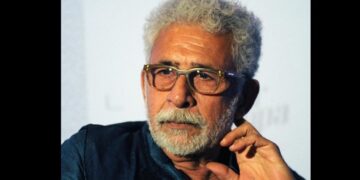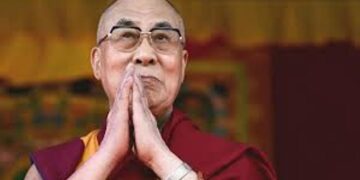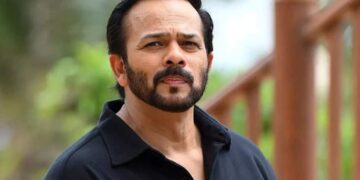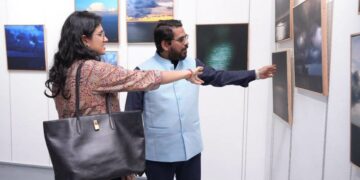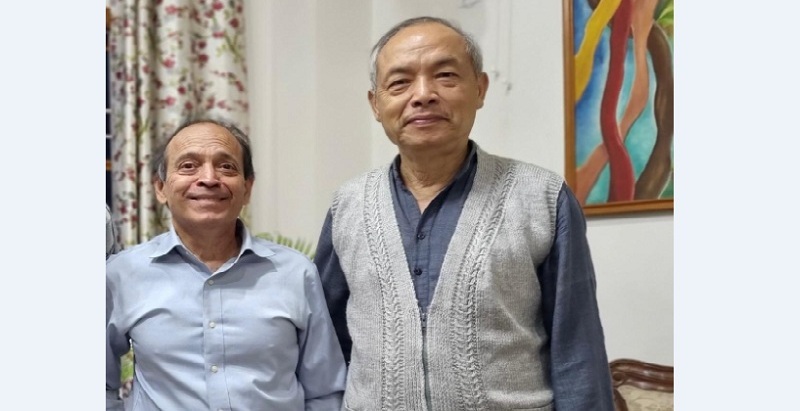The suitable boy honoured us recently by way of letting my family host him in our house in the suburbs of Imphal, during his stay in Manipur. Vikram Seth, the renowned author, preferred an incognito trip, shy of interacting with large groups of people. Yet, his deep skills to observe, listen and absorb things around him impressed me much.
He almost learnt a few words and sentences of the Manipuri language just by observing the signboards written in the original Manipuri script while taking him around the Kangla, the ancient capital of the kingdom of Manipur in the heart of Imphal city. He studied the architectural style of the relics and the part surviving structures with the keen eyes like that of an owl. As he saw the historical site, he commented that he had not expected to see such sites in the region.
We got talking about the past glories of the kingdom through the centuries and its downfall after the defeat of the Manipuri army in the hands of Burmese kings in 1919 and later the British forces in 1891. The remnants of the structures were mostly religious sites, the temples which the British learnt not to touch after the great First War of Independence 1857. On one occasion, he was lying down flat on his back to take pictures of a carved design on the curve of the roof, which he claimed was unique in many ways. In short, he had a fair idea of the history of the Kingdom of Manipur during this short visit.
He had travelled across many parts of Arunachal Pradesh, Assam, Mizoram and Tripura over a period of 15 days before entering Manipur on November 10. He shared with me that he had met with many of his friends along the way. Many shared their views on the situation in the Northeast, and of Manipur in particular.
As was to be expected, our conversations invariably veered towards the serious situation in Manipur, which has affected the common people for over 18 months now. Our discussions, as concerned citizens, would never end due to the complexity of the issues involved, not only inside the state of Manipur but in the neighbouring Myanmar, and in the overall context of dimensions of security in the Indian states of Assam, Nagaland and Mizoram as well.
I was much impressed that he had a deep understanding of the crisis within a very short time of his visit to the Northeast region. During a brief interaction with budding writers and authors in “Books and Coffee” in Imphal, organised by my daughter Priyanka and her friends, a few of those who were present inquired about his views on the present crisis in the state. Vikram carefully refrained from making any politically sensitive comments on his part. He inquired from me about the reasons behind the poor conditions of the roads from Mizoram to Manipur that he had experienced. I did convey that the national highway project is nearing completion and that very few vehicles actually plied on this road during the last few years.
He even wondered about the budgetary allocations of state road projects in the hill areas, to which I shared the available figures with me, which according to him often did not match with the “ground realities”.
We agreed that there is something amiss about the whole thing of the delivery system of services and benefits to the people at large in the region. We suspected that greed for money and power may have something to do with it. We agreed that an atmosphere of trust needed to be built to begin genuine dialogue between the leaders of the communities involved, away from the shadow of the gun on both sides. Respecting genuine aspirations and accommodating the possible in an atmosphere of “Give and Take” while rejecting unjustified calls ensured by the authorities.
As he prepared to take leave from our abode on November 15 for his journey to other parts of the region, he wanted me to sign in the copy of my book “Making of a General, a Himalayan Echo”, which he kindly accepted from me. From a heap of his books lying nearby for his signatures, he took out a copy of his book “From Heaven Lake” and asked me to read it. After reaching Shillong a day later, he messaged me about the contrast between Imphal and Shillong. And he added, “If only calmer, clearer heads were the ones who made decisions that affect the lives of so many people.” How true!


